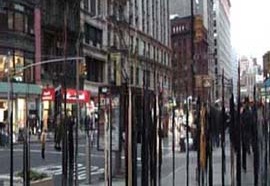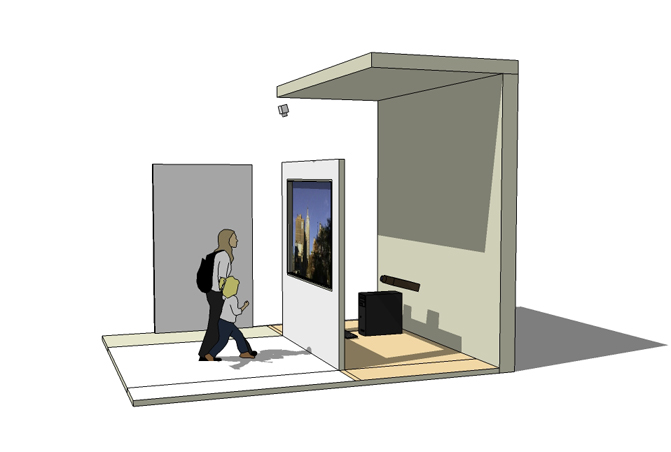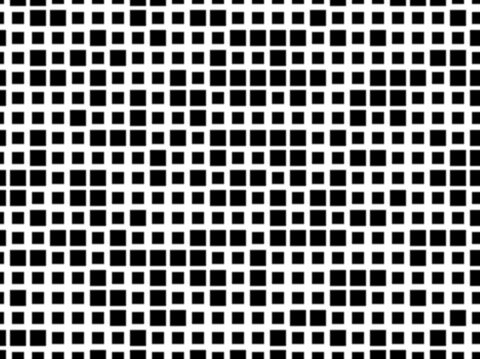I spent several hours last night and this morning looking over all the posts since we started if:book last december. It’s been a remarkably interesting experience working with my colleagues, exploring and defining the boundaries of our interests and effort. Here are a few posts i picked out for one reason or another. On monday we’ll post a new revised mission statement for the institute .
1. Three Books That Influenced Your Worldview: The List
we launched the site with the results of our first though experiment in which we asked people to name the three books that most influenced their world view. the results were very interesting. check out the exchange with Alan Kay too.
2. networked book/book as network
kim wrote this first if:book post which mentioned the concept of a “networked book” — a subject that we keep coming back to and find increasingly exciting.
3. genre-busting books
sol gaitan was our most frequent guest blogger. the breadth of her cultural knowledge and her constant reminder that the boundaries of our world extend beyond the hyper-connected coasts of the U.S. are a crucial and welcome contribution.
4. from the nouveau roman to the nouveau romance
one of a dozen or so long posts from Dan who took a seemingly obscure subject and wove it into a deliciously interesting discussion completely relevant to our effort to understand the shifting landscape of intellectual discourse. a more recent one
5. contagious media: symptom of what’s to come?
first time we experimented with making our work open and transparent. this idea grew over time and is now in the draft of our new mission statement which says, Academic institutes arose in the age of print, which informed the structure and rhythm of their work. The Institute for the Future of the Book was born in the digital era, and we seek to conduct our work in ways appropriate to the emerging modes of communication and rhythms of the networked world. Freed from the traditional print publishing cycles and hierarchies of authority, the Institute seeks to conduct its activities as much as possible in the open and in real time.
6. ted nelson & the ideologies of documents
a brilliant post by Dan about the importance of (much-maligned visionary) Ted Nelson’s views on the way we choose to structure and represent knowledge.
7. it seems to be happening before our eyes, Pt 1 and Pt2
2005 is likely to be remembered as the year that we started to pay more attention to individual voices in the blogosphere than the mainstream media. The NY Times and Washington Post may never recover from the exposures that showed they were in cahoots with the Bush administration over Plamegate and the admission of wholesale unauthorized wire-tapping.
8. blog reading: what’s left behind
dan wrote this post about the deficiencies of the structure of blogs. it’s a recurring theme at the institute and you’ll see a lot more about it in the coming year.
9. transliteracies: research in the technological, social, & cultural practices of online reading
ben re-posted this interesting discussion by Alan Liu on the changing nature of reading and browsing in an online context.
10. flushing the net down the tubes
ben’s first post on the crucial subject of the coming battle in which the telcos and cable companies will try to turn the web into a broadcast medium favoring the big media companies over individual voices.
11. sober thoughts on google: privatization and privacy
thanks to ben’s thougtful posts, the institute has gained a reputation for developing an even-handed view of Google book scanning and searching project.
12. the “talk to me” crew talks with the institute
now that we’ve got our cool new offices in williamsburg (brooklyn), we’ve been inviting an interesting group of folks to lunch. Liz and Bill were two of our favorite visitors, written up in a nice post by Ray. Other interesting visitors were Ken Wark, Tom De Zengotita and Mitchelll Stephens.
13. the future of the book: korea, 13th century
couldn’t resist including ben’s write-up to a buddhist monastery in korea — both because it has the most beautiful photo that appeared in the blog and for one of my favorite images . . . the whole monastery a kind of computer, the monks running routines to and from the database.
Category Archives: 2005
itp winter 2005 show
New York University’s Interactive Telecommunications Program recently had its Winter 2005 show. As always, the show was packed with numerous projects and visitors. Some of the work touched upon ideas we think about at the institute.


A few projects explored new ways to mediate New York. Leif Mangelsen and Jung Oh, in Time Scanned, created static panoramic images by stitching together slivers of digital video to document New York over time and space. Moving beyond the traditional guide book and map, the augmented reality project, DataCity looked at how we navigate New York. In this case, Shagun Singh, Jon Kirchherr and Saranont Limpananont proposed to layer contextual information on an interactive display system to enhance the experience of traveling through the city.
 Saiyanthan Sriskandarajah created, The Wasteland, a digital representation of T.S. Eliot’s poem. Each letter is encoded into a binary format and then printed with a large format printer. The end result is an abstracted digital representation of a literary work.
Saiyanthan Sriskandarajah created, The Wasteland, a digital representation of T.S. Eliot’s poem. Each letter is encoded into a binary format and then printed with a large format printer. The end result is an abstracted digital representation of a literary work.
Joshua Knowles, Adam Asarnow, Charles Pratt, and Rocio Barcia created Itp.licio.us which was a new twist to the facebook, and explored folksonomy, privacy, and social networks by asking fellow first year students to tag each other. The successful end result (students received an average of 29.4 tags) also addressed issues of internet mediated social interaction and making public the personal information of what classmates think of others.
Although, the twice a year itp shows can be a bit of an overwhelming experience, they offer a glimpse (albeit scaled down) of emerging applications of technology which are often just around the corner for mainstream use.
it seems to be happening before our eyes
it looks like one hundred years from now history may record that 2005 was the year that big (news) media gave way to the individual voice. the intersection of the ny times/judy miller debacle with the increasing influence of the blogosphere has made us conscious of the major change taking place — RIGHT NOW.
congressman john conyers wrote today that “I find I learn more reading Arianna, Murray Waas and Lawrence O’Donnell than the New York Times or Washington Post.”
wow!
